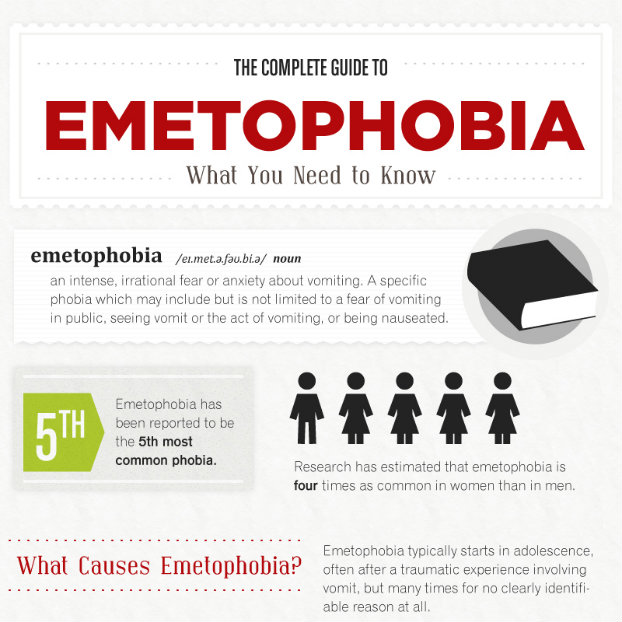According to an article from International Business Times, about fifty-percent of adults in the United Kingdom have a phobia. The article also cites that “a third [are] scared of heights, one in seven [is] afraid of flying and one in ten [is] driven to distraction by spiders.”
Phobias of things like insects, needles and illness are all too common. Phobias can cause severe distress and anxiety. They can make people behave irrationally, going to unreasonable lengths to avoid a feared situation or object.
Here’s an example: Someone who has emetophobia (the fear of being sick) may be so frightened of the idea of illness that he or she may start to worry about seeing someone vomit when out in public. This can lead the affected person to start thinking he or she would be safer by staying home. Of course this would then cause the individual to lose his or her job and keep him or her from being able to go out with friends and socialize.
Phobias can start out small enough (like a child being afraid of dogs after being bitten by one), but without treatment they can grow extreme and all-consuming.
Some phobias may only affect a small portion of someone’s life. A fear of flying, for instance, could probably be hidden from others. But if the need to travel for a major event or a business trip arises, it may be more difficult to conceal the fear. This can also cause the affected person to feel shame.
If you want to read the article mentioned above about phobias and about two people who treat them in the UK, you can visit the link below.
http://www.ibtimes.co.uk/articles/462131/20130428/phobia-week-morning-itv-nik-eva-speakman.htm
Photo Credit: Thomas Shahan via Compfight cc





